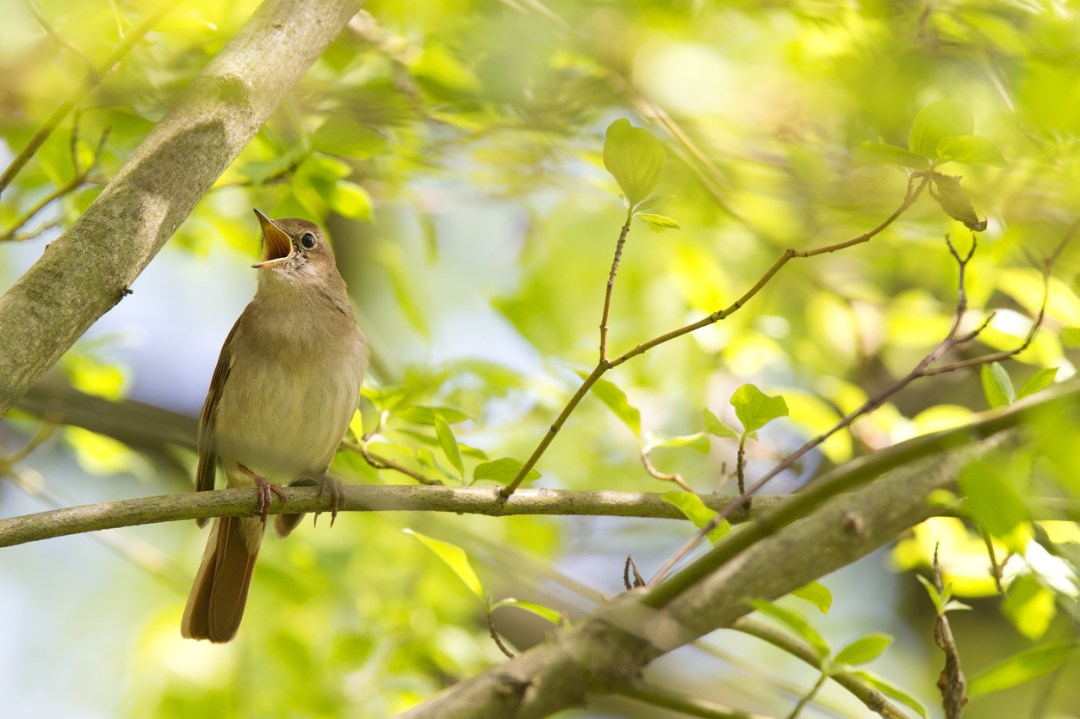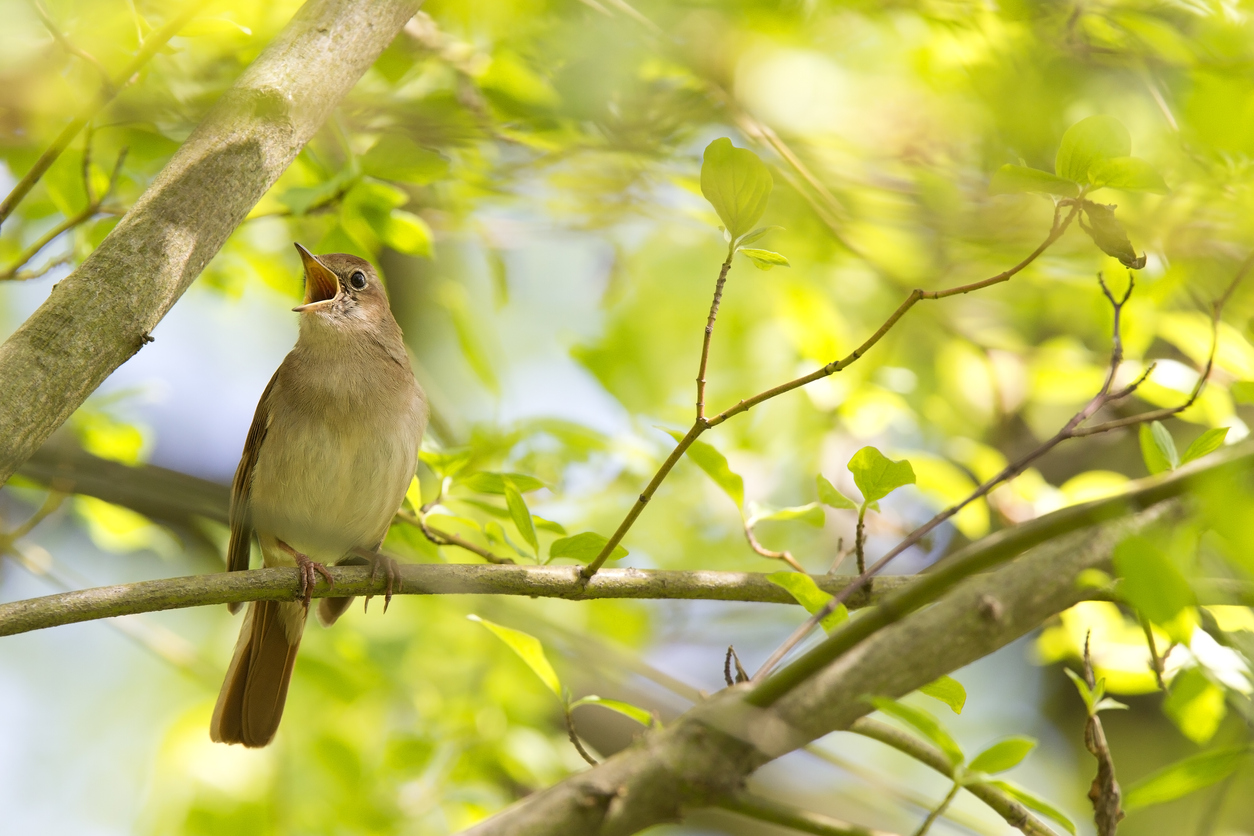The first cuckoos are audible, skylarks are singing their hearts out, the dawn chorus is in full, joyous effect and more bitterns are booming than in decades. But the real highlight of the birdsong calendar is only now beginning in earnest: nightingale season.
Nightingales have been winging their way from sub-Saharan Africa across Spain and France and into the wilder fringes of the southern part of England, where they are beginning their attempts to seduce each other by means of song. And it’s this seductive sound that has given this tiny bird such a huge place in our culture.
There are two guaranteed reference points for any discussion about nightingales. So I may as well get Keats and Berkeley Square out of the way immediately. But the cultural resonance of the world’s greatest songbird is much, much bigger than these recurring staples. Nightingales have been popping up everywhere for nearly 3,000 years, and occur in everything from the poetry of Sappho in 600BC to modern punk music, giving their name to a band that toured with the Clash. They even provide the title of one of this year’s big computer game releases. I first encountered the notion of them as a child reading Tintin, in which the staple comic character, the opera singer Bianca Castafiore, had the title ‘The Milanese Nightingale’ – something that initially confused me as Hergé portrays her as having a voice that would have one ducking for cover rather than listening rapt.
There have been references in two of the most books I’ve read most recently, too. In The Green Hat by Michael Arlen, from 1924, the bright young narrator encounters one, caged and consequently sulkily mute, in a nightclub in Paris. And in Elizabeth Jane Howard’s 2002 memoir Slipstream, the author recalls one of her first dates with Peter Scott, the celebrated ornithologist and painter of birds, whom she would go on to marry. Scott takes her to see Judy Garland appearing in a London production of A Nightingale Sang In Berkeley Square and afterwards they meet the singer backstage, with Howard going on to become her lifelong friend. Later Scott buys her a drawing of a nightingale as a memento of that night.
This is not one to defer to your bucket list, because at their current rate of decline it’s entirely possible that nightingales in the UK will die out before you or I do. It’s something to do right now, this spring
Despite this cultural prevalence, a vanishingly small number of people will ever have actually heard a nightingale sing. There’s apparently no data on how many have (this might be an idea for an RSPB survey) but I’d hazard it would be in the low single digits percentage-wise. And that you’re more likely to have seen the ruins of Sappho’s classical world in Greece than to have heard a nightingale sing in your own country. Fewer still will have seen one – though they’re so nondescript that this misses the point. Nightingales are really all about their song.
It was once a relatively common sound, which is why it came to be so widely referenced. Keats is said to have heard the bird that inspired his ode in Hampstead (he reputedly wrote the poem in the garden of the Spaniards Inn) in what is now zone two of nine in modern London. But that was in 1819. They’re unlikely to have been heard in Mayfair’s Berkeley Square since the days of King Alfred or earlier. They do not like crowds.
And, of course, there’s a direct connection between the rarity of actually hearing one and a precipitous population decline: their numbers are thought to have fallen by 90 per cent in 50 years, down to barely 5,000 breeding pairs today. Human encroachment was bad enough for them but the soaring number of deer (particularly those ghastly muntjac) destroying habitat is pushing them to the brink.
This is why trying to hear one should be at the very top of your list of things to do. But this is not one to defer to your bucket list, because at their current rate of decline it’s entirely possible that nightingales in the UK will die out before you or I do. It’s something to do right now, this spring.
You are almost guaranteed to hear one if you can motivate yourself to head for the wilds of Sussex, Essex, Kent or Dorset by night. There are even places closer to hand where you may get lucky: we heard one two years ago by the River Lea in Fishers Green, only a couple of miles outside the M25. Twitchers are great sharers of information so the internet abounds with notes on where nightingales have been heard and on what dates and times. And that makes working out where and when to go much easier than you might think.
Just play some nightingale song on YouTube before you go so you know what you’re listening out for. As naturalist Sam Lee put it towards the end of his elegiac 2021 book The Nightingale: ‘Being present and pausing to give renewed adoration towards this small, quiet beauty… is the most powerful and vital act we can make to reconnect and bring enchantment back into the natural world and into our lives.’ Quite.







Comments